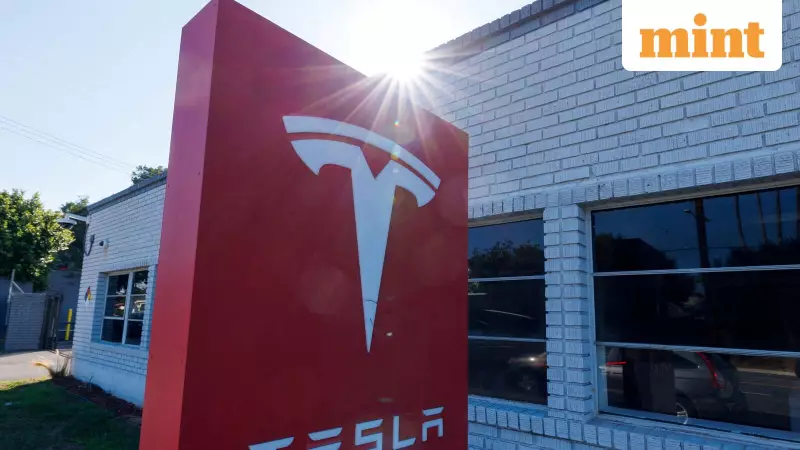
In a significant move reflecting escalating geopolitical tensions, Tesla has instructed its suppliers to completely exclude China-made components from vehicles manufactured for the US market. This strategic shift represents the electric vehicle giant's latest response to growing trade barriers between Washington and Beijing.
The Supply Chain Decoupling Accelerates
Tesla made the decisive move earlier this year to stop using China-based suppliers for its American-made vehicles, according to people familiar with the company's plans. The electric vehicle manufacturer has already begun replacing some Chinese components with parts sourced from other countries and aims to complete this transition for all components within the next one to two years.
The company's efforts to reduce dependence on Chinese manufacturing began during the COVID-19 pandemic, when supply chain disruptions highlighted the vulnerabilities of concentrated production. Tesla had been encouraging its China-based suppliers to establish manufacturing facilities elsewhere, including in Mexico, to create more resilient supply networks.
US Tariffs Force Accelerated Timeline
This year's imposition of stiff US tariffs on Chinese imports by President Trump dramatically accelerated Tesla's de-Chining strategy. The tariffs made Chinese components more expensive and complicated the company's pricing strategy amid fluctuating trade policies.
China dominates global production of numerous automotive components, including critical chips and batteries, often offering lower prices due to massive production scale, reduced labor costs, and favorable currency exchange rates. However, the geopolitical landscape has made this cost advantage increasingly untenable for US-market vehicles.
Recent disruptions in automotive chip supplies, stemming from a trade dispute between China and the Netherlands, have further intensified discussions within Tesla about the urgency of supply chain diversification.
Industry-Wide Impact and Specific Challenges
Tesla's strategy reflects a broader trend of decoupling between the world's two largest economies. Numerous American companies are now actively excluding China-made components or shifting manufacturing outside China for products destined for the US market.
The automotive industry faces particular challenges due to its globally integrated supply chains. This spring, automakers worldwide grew concerned when China imposed export restrictions on rare earths and magnets essential for vehicle production. More recently, car manufacturers struggled to secure semiconductors after China blocked exports of chips made by Nexperia, a Dutch company with significant manufacturing operations in China.
One of the most challenging components for Tesla to replace has been lithium-iron phosphate (LFP) batteries, where China's Contemporary Amperex Technology (CATL) has been a major supplier. Tesla had been selling vehicles in the US with Chinese-produced LFP batteries until last year, when these batteries became ineligible for EV tax credits and faced additional tariffs.
Tesla is now working to establish LFP battery production in the United States. The company expects its Nevada facility manufacturing such battery products to become operational in the first quarter of 2026. Tesla Chief Financial Officer Vaibhav Taneja confirmed in April that the company is focused on manufacturing LFP cells in the US and securing supply chains from non-China-based suppliers, though he acknowledged the process would take time.
The US remains Tesla's largest market, with vehicles driven by American consumers produced exclusively at the company's US factories. In contrast, Tesla's Shanghai plant manufactures vehicles primarily using locally sourced components for distribution within China and to markets in Asia and Europe, but not to the United States.
Over recent years, Tesla has worked with Chinese suppliers of components ranging from seat covers to metal casings to establish manufacturing facilities and warehouses in Mexico and Southeast Asia, creating alternative supply routes that bypass direct China-US trade channels while maintaining relationships with proven suppliers.






